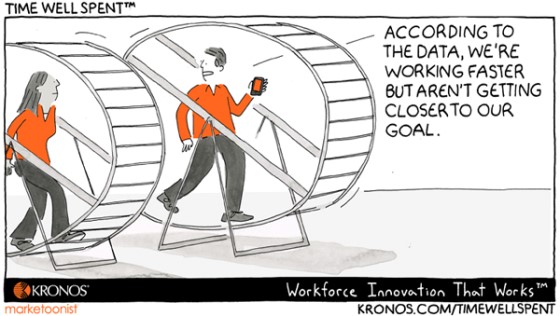Working Faster Is Not Always Smart – Friday Distraction
I’m always looking for ways to work smart and be more productive. I try to develop my own personal tips (some people might call them “hacks”) to help. For example, years ago, I worked with someone who kept their papers organized in Pendaflex accordion folders.
One set of Pendaflex folders was organized by month. So, if I have something that I wanted to remember in a couple of months, I can tuck it away in that month’s slot. I might see a conference that I want to put in next year’s budget. Instead of keeping it on my desk, and losing track of it, I would put it under the month that we started budget planning.
The second set of Pendaflex folders are by number – one for each day of the month. At the end of the month, I take out all of the papers for the upcoming month and file them by day. I have a project that I need to finalize by the 15th of the month, I can file the paperwork appropriately. Or I’ve jotted down some notes for a future HR Bartender post, I can file it away until the day I need to refer to them.
The reason I like this system is because it keeps things off my desk. Except for the work I need to be focused on. I find that keeps me productive.
Today’s Time Well Spent from our friends at Kronos made me laugh because sometimes we can feel exhausted but not very accomplished. Working faster isn’t always working smarter. When you have a big project, sometimes breaking the tasks down into smaller pieces is the best way to accomplish the goal.
Take a moment to decide the best way to work on a project. Sometimes we have to devote all of our resources and energy toward a result. Working faster is the best option. But that doesn’t mean that working faster is the only way. Or the smart way. Other options (like breaking a project into smaller milestones) might do a better job of accomplishing the goal, with less stress on employees and organizational resources.
Create a plan of action. All planning activities do not take days, weeks, or months. It’s possible to take ten minutes and develop a plan for accomplishing something. When faced with a project or task, take a few moments to just think about the steps necessary for completion – using the method you’ve decided (i.e. “fast” or milestones).
Even in today’s high-tech work environment, we still have to manage paper and projects. Taking a moment to organize your work can yield a better use of organizational resources and results.
13